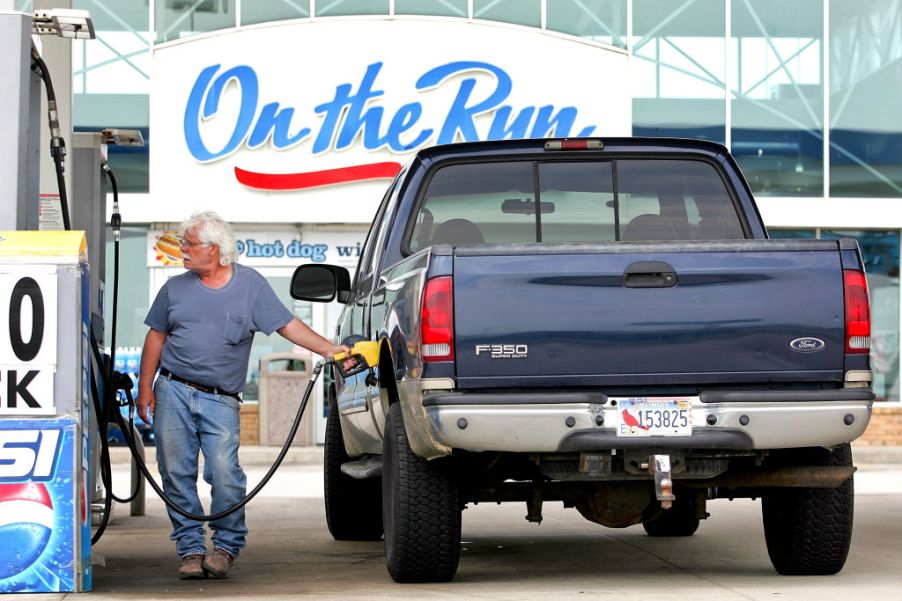
Ford Hints That It May Have to Stop Offering a Full Lineup of Heavy-Duty Trucks
Ford has made a lot of impressive cars over the years, particularly in the truck segment. The F-series is one of the most popular types of pickup trucks, ranging from full-size to heavy-duty models. With the release of the Ranger, the company proved that even a midsize truck can have excellent towing capability.
Ford’s most powerful truck, the F-350, can tow up to 35,000 pounds when properly equipped. However, as is the case with most trucks, these vehicles aren’t very good on fuel economy and the powerful diesel engines are worse for the environment than one powered by gasoline.
However, according to the annual report released by Ford last year, the emissions standards for these trucks will change soon. This could lead to the death of Ford’s heavy-duty truck lineup.
Stricter EPA regulations
Most new cars are regularly tested by the EPA to determine how much harmful smog the vehicle’s engine is releasing into the environment. Certain vehicles are required to be tested once a year, like taxis or buses. Some states don’t require formal emissions testing, but vehicles made before 1996 and all heavy-duty models currently have very lax requirements.
In recent years, the state of California has decided to crack down on how much smog a car is allowed to produce. Because of this, other states are now proposing their own specific emissions requirements.
This could be a potential hassle for American automakers. Many may not want to go through the trouble of determining where its vehicles can be sold due to the varying standards. In this case, it would be easier and more cost-effective to cease production of some cars.
What does this mean for Ford’s heavy-duty trucks?
Currently, the standards that California intends to enforce are held back by federal law, but there’s a good chance that the state will take the matter to federal court. If this happens, heavy-duty trucks and trucks with certain engines may not be available to purchase in states with tougher emissions requirements.
The NHTSA and the EPA have each voiced support for California’s regulatory changes. If the new standards are implemented, it will affect all heavy-duty trucks, delivery trucks, shuttle buses, and vans. These standards may also affect certain other light trucks with diesel engines. The changes would take effect in the 2027 model year.
How this will affect Ford
Once these changes are in effect, the company would likely be out millions of dollars in lost profits. In the report, the automaker says that it may have to discontinue certain trucks entirely if they can’t be sold in certain states.
Instead, it would focus its efforts on marketing vehicles that are better on gas mileage. Other automakers have not yet spoken out about the new regulations, but will probably have to implement similar solutions.
Some would argue that Ford’s heavy-duty trucks have failed to pass current emissions tests already. In a lawsuit filed last year, individuals claimed that trucks with the V8 6.7-liter engine were equipped with a defeat device, meaning that it could turn off its emissions controls during daily driving.
The lawsuit also stated that Ford and other popular automakers fine-tuned the trucks’ exhaust system to have lower levels of NOx particles during startup, meaning a better chance of passing the emissions test.
Ford’s electric efforts
Under these new regulations, Ford’s vehicle lineup may become more restricted. However, thanks to its new EV technology, it may not be the end of heavy-duty trucks just yet.
A new all-electric Ford F-150 is set to be released in 2021. Ford has already demonstrated the electric offering to be just as powerful as its original, so it’s not too farfetched to think it could craft a similar engine for the heavy-duty models.



